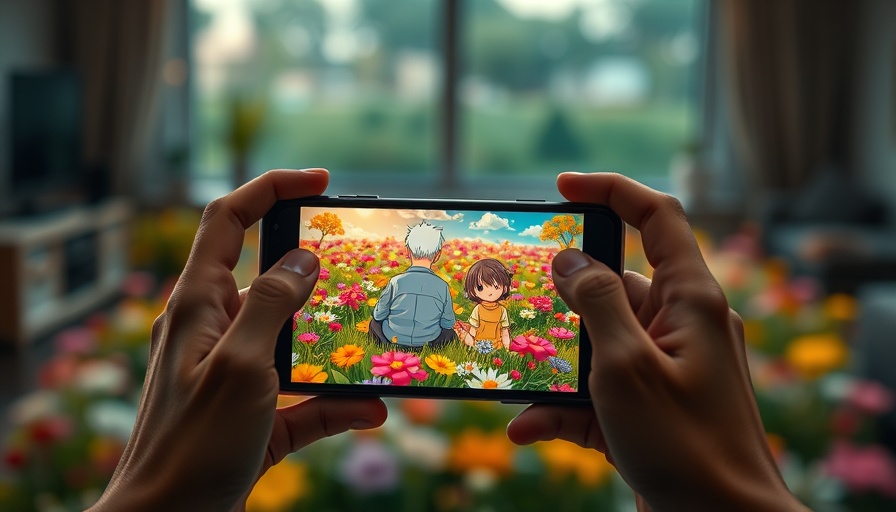
The Controversy Behind AI-Generated Art: A Double-Edged Sword
The recent phenomenon of transforming personal images into Ghibli-style portraits using AI has ignited a passionate debate across social media. While many enthusiasts embrace the novelty and charm of these creations, a significant portion of the creative community is expressing outrage, deeming this trend as "disrespectful" and a blatant exploitation of artistic integrity. The incidents surrounding the trend reflect broader discussions regarding the ethical implications of AI in creative industries, where the distinction between homage and appropriation is increasingly blurred.
Understanding Social Sentiments: Is AI Art Genuine?
The introduction of AI tools capable of generating artistic styles on demand has raised questions regarding authenticity and originality in art. Critics argue that the AI cannot capture the emotional depth that human artists imbue in their work. One Reddit user articulated this sentiment starkly: "AI can’t replicate the heart, emotion, or storytelling of real artists". The growing dependency on AI for creative expression can diminish appreciation for traditional craftsmanship, which is often the product of years of dedication and skill.
Hayao Miyazaki's Resounding Critique: An Ethical Stand on AI
Co-founder of Studio Ghibli, Hayao Miyazaki, has long been critical of AI in animation. His statement that AI-generated animation is "an insult to life itself" echoes through the current debate, highlighting a foundational conflict between technology and artistry. Miyazaki's perspective reinforces a call for respect towards the painstaking processes that define human creativity, serving as a rallying point for artists who feel threatened by AI encroachment in their fields.
AI: A Tool for Innovation or Exploitation?
Technological innovations are continually reshaping our understanding of creativity. AI’s capacity to generate images and replicate styles introduces new avenues for personal expression, yet it also poses a danger to original artists whose work may be co-opted without their consent. Proponents of AI argue that these tools democratize art creation, allowing anyone to express themselves visually, but at what cost? The discussion does not just revolve around artistic creations; it also raises questions about copyright, ownership, and the ethical use of AI-generated artwork.
Exploring Broader Implications: The Future of Creativity
As AI technologies evolve, the conversations surrounding their implications for creativity and ethics continue to grow. The emerging perspective is that AI should complement rather than compete with human artists, offering new tools for creativity without undermining the centuries-old traditions that have shaped art as we know it. This trend presents an opportunity to reflect on how we value creativity in the digital age. Future innovations should focus on collaborative frameworks where both AI and artists can coexist and benefit from each other.
This unfolding situation not only affects the creative community but also extends to those simply looking to explore their own artistic expression in a tech-driven world. As consumers of AI-generated art, it becomes imperative for us to understand the importance of supporting original creators. Awareness can foster a culture that respects and compensates talent, allowing both traditional and AI-generated art to thrive.
As we navigate this complex landscape, it is essential that AI enthusiasts consider the broader implications of their engagement with these tools. While the allure of quick and compelling art is undeniable, there is a strong ethical case to be made for recognizing and honoring the hard work of human artists. Finding a balance where AI is used responsibly and creatively can lead to innovative breakthroughs while ensuring that the foundations of artistry remain intact.
This blend of technology and creativity demands a collective re-evaluation of what it means to create in the 21st century. Embracing continued innovation while respecting traditional art forms may allow us to cultivate a more enriching and respectful artistic community. If you want to stay updated on the evolving conversation around AI and art, subscribe to our AI feed for the latest developments in AI news and ethical discussions.
 Add Row
Add Row  Add
Add 




 Add Row
Add Row  Add
Add 

Write A Comment